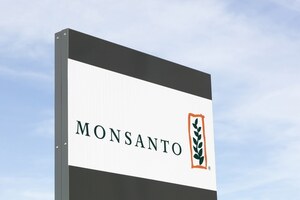 According to Monsanto, most of the lawsuits are generated by residential users. The change in formulation may thus limit Monsanto’s future legal liability from this subset of potential plaintiffs. It is less clear, however, that the change will substantially lessen overall harm, including the health and environmental damage often linked to agricultural use.
According to Monsanto, most of the lawsuits are generated by residential users. The change in formulation may thus limit Monsanto’s future legal liability from this subset of potential plaintiffs. It is less clear, however, that the change will substantially lessen overall harm, including the health and environmental damage often linked to agricultural use.Scuttling Monsanto’s settlement proposal
The $2 billion settlement proposal, negotiated between Monsanto and a group of existing plaintiffs in the Multidistrict Litigation (MDL), was to have covered two groups of people:
- Roundup users who have been diagnosed with non-Hodgkin’s lymphoma but who have not yet sued and have not yet hired a lawyer to sue; and
- people who used Roundup before February 2021 but who have not been diagnosed with non-Hodgkin’s lymphoma.
On May 26, U.S. District Judge Vince Chhabria slammed the offer as “clearly unreasonable” for the undiagnosed group. The latency period for development of the cancer may be ten or fifteen years. The fund is designed to last only four years. Additionally, the Court wrote that provisions in the settlement “greatly exaggerate” the potential benefits of four years of “vaguely described medical monitoring” for those who have not yet contracted the cancer. Benefits of a compensation fund are “also vastly overstated” for that group. Monsanto withdrew a previous settlement proposal in February after the Court expressed reservations.
There are roughly 5,000 Roundup cases consolidated in the MDL in the U.S. District Court for the Northern District of California for pre-trial proceedings. The three bellwether lawsuits that have gone to trial have yielded jury verdicts in the millions, or in one case, billions of dollars.
Doing the right thing or trying to rescue its reputation?
In 2015, the World Health Organization’s International Agency for Research on Cancer classified glyphosate as “probably carcinogenic to humans.” A University of Washington study that focused on people with the “highest exposure” to the herbicide, concluded that a “compelling link” existed between glyphosate exposure and an increased risk of developing non-Hodgkin’s lymphoma. Monsanto has now floated the idea of removing glyphosate from formulations of Roundup intended for household use.
In fact, though, Roundup already exists in a variety of formulations, containing varying amounts of glyphosate. The active ingredient in a glyphosate-free formulation available in Austria is reportedly nothing more than vinegar.
With respect to professional and agricultural product lines, however, the company is said to have ruled out any formula changes, insisting that there are no alternatives. Monsanto has also indicated that it intends to initiate discussions with the U.S. Environmental Protection Agency about changing the label on glyphosate-containing products. The company’s goal appears to be to connect consumers to studies that support the company’s view that the product is safe to use.
Do these new overatures really indicate a change of corporate heart? The answer may lie in the company’s financials.
The Roundup resistant seed market
Glyphosate-containing herbicides are non-selective, meaning that they kill whatever plants they come into contact with. In the 1990s, Monsanto introduced genetically-modified corn, soybean, and cotton seeds that could withstand the weed-killer, obviously not intended for the home gardener.
It was only at that point that the use of glyphosate saw a dramatic increase. Farmers have now found themselves locked into a cycle of using Roundup, which is most cost-effective when used with Roundup-resistant seeds which, in turn, requires using Roundup to kill weeds. In 2016, Roundup was the most widely and heavily applied weed-killer in the history of chemical agriculture in both the U.S. and globally.
Monsanto reports operational performance in two segments: seeds and genomics, and agricultural productivity. The former includes seed sales and revenue earned from licensing genetic traits; the latter comprises herbicide sales, both agricultural and residential. No further breakdown of herbicide sales between agricultural and residential use was available.
READ MORE ROUNDUP CANCER LEGAL NEWS
What price agricultural and environmental contamination?
Studies suggest that the use of glyphosate combined with the dominance of genetically engineered crops has produced a looming public health threat that extends beyond non-Hodgkin’s lymphoma, both in the U.S. and around the world. Farmers have sprayed billions of pounds of a probable human carcinogen over the past decade. This in turn finds its way into air and waterways. The full impact of this contamination has not been fully assessed.

READER COMMENTS
Karen Ashley
on
Eric Bjerregaard
on